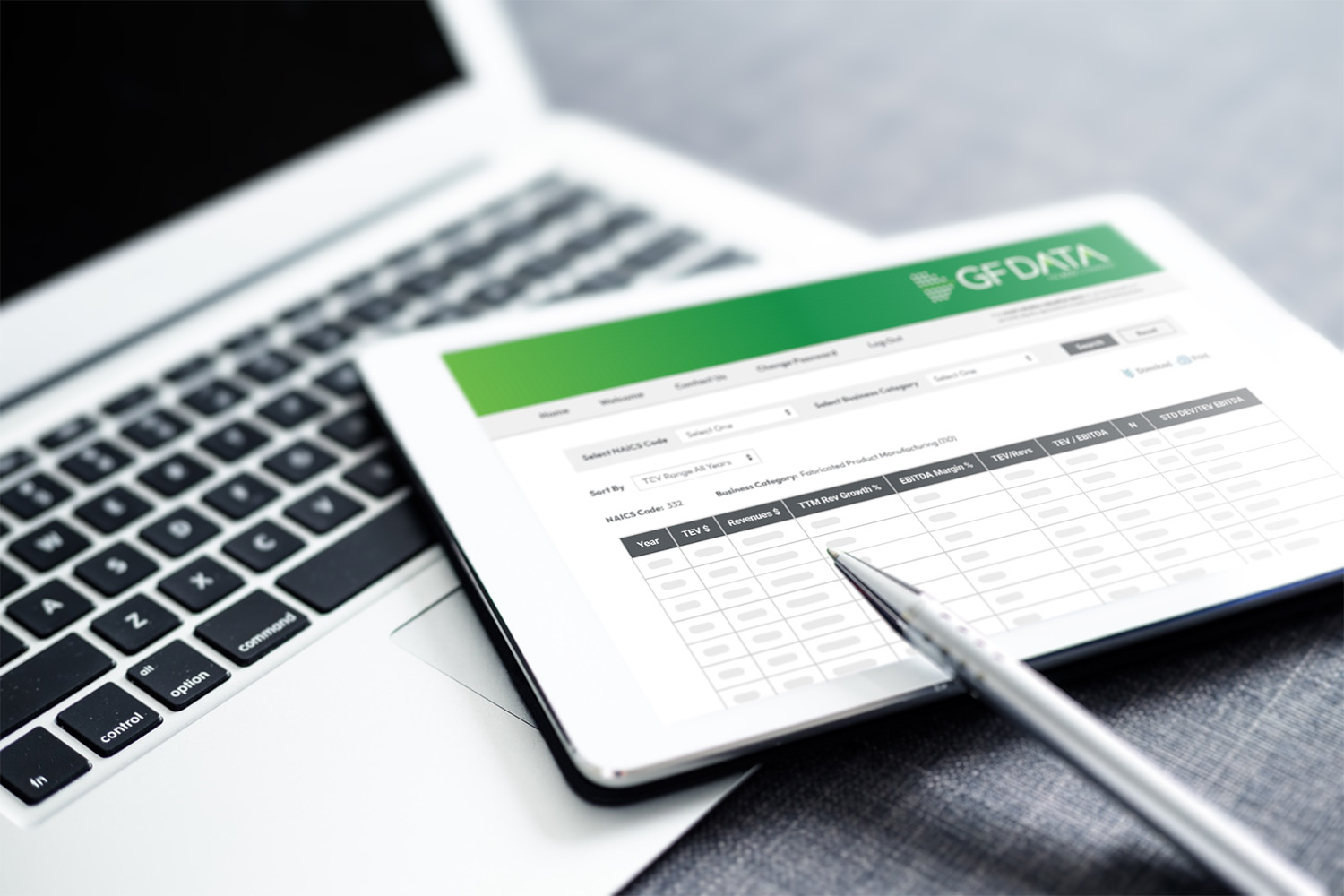Private equity buyers continued to tap the brakes in 2Q, according to GF Data’s August report.
After a blistering pace in the latter half of 2021, completed deal volume was down markedly in the first half of 2022, while valuations for mid-market companies acquired by private equity groups and other deal sponsors held strong at an average of 7.4x EBITDA.
The 264 active private equity contributors to GF Data on 55 transactions closed in the quarter, meeting our parameters – Total Enterprise Value (TEV) $10-250 million and TEV/Trailing Twelve Months (TTM) Adjusted EBITDA 3-18x.
While volume is down, businesses with above-average financial characteristics continued to account for an increased portion of completed deal activity, with these deals comprising 68 percent of the total compared to a historic norm of 57 percent.
“We continue to hear anecdotal reports that non-bank lenders are reining in debt packages even on highly desirable properties,” said GF Data Founder Andrew T. Greenberg. “If true, this development has not yet had an impact on aggregate debt multiples.” Total debt averaged 4.0x in 2Q, in line with the first quarter and 2021.
What is apparent in the numbers is a greater share of generously valued deals being completed as leveraged recaps, rather than as change-of-control transactions. The average multiple for buyouts is generally quite close to the mark for the overall deal universe – not surprising in that this category invariably makes up about 85% of the total.
In the first six months of the year, though, the average multiple for buyouts was 7.2x, compared to 7.4x overall.
“This is unusual and suggests that more high-performers are choosing to take chips off the table rather than to substantially exit,” said Bob Dunn, GF Data’s Managing Director.
For larger transactions valued between $250 million and $500 million, GF Data found an average purchase price multiple of 8.9x EBITDA. This is well off the average of 12.0x last quarter – the average of the two periods is likely a better measure than either period individually. GF Data will continue to investigate this new deal size parameter in future reports, eventually incorporating a full analysis of this segment once we have collected enough data.
Finally, successive interest rate increases began to bite into leveraged transactions in the second quarter. Average interest on senior debt saw a marked increase in the second quarter for larger deals, jumping more than a percentage point in the $50-100 million and $100-250 million tiers, ending up at 5.3% and 5.7%, respectively.
“Investment headwinds continued in the second quarter from rising inflation and interest rates, geopolitical uncertainty, labor constraints and supply chain issues,” said Patriot Capital Group Managing Partner Charles McCusker. “However, many of the Patriot portfolio CEOs are reporting an easing of input costs, better predictability of the supply chain and more access to quality labor and as a result we expect M&A activity to rebound in the second half of the year.”
